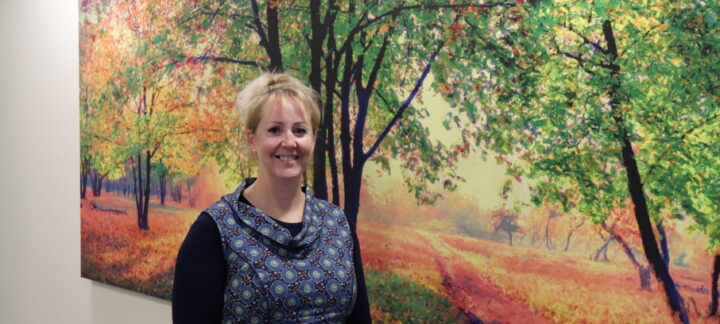“Our Lived Experience workers are walking billboards of hope,” says Mercy Mental Health Consumer Consultant Claire Conlon.
“When I was in a bad way, seeing peer workers on the ward gave me hope and optimism. These were people who had been through what I was going through and they had come out the other side.”
For three decades, Claire had worked in various roles in community health, aged care, disability — and mental health. Then, in early 2021, the unexpected happened. Claire found herself on the other side of the system, as a patient in the mental health inpatient service at Werribee Mercy Hospital.
“I was pretty unwell,” Claire says. “And after working in healthcare for so many years I was surprised at what I experienced. People were doing the best they could, but I got a whole new perspective on decision-making and self-determination.
“No one likes having decisions made about them. I wanted to be seen as a human being and to be involved in making decisions about my care.”
In late 2021, Claire returned to Werribee Mercy Hospital to start a new job as a Consumer Consultant. Claire works alongside a Carer Consultant and a small team of peer workers, who form the Mercy Mental Health Lived Experience Workforce.
As the name suggests, everyone in the team has lived experience of the mental health system either as a consumer or carer. Claire says this is an important factor for people who are receiving care.
“You are more likely to engage with someone who has experienced what you are going through,” she says.
Claire says the Royal Commission into Victoria’s Mental Health System showed just how much has to change. “But I have hope,” she says. “We need leaders to be allies and to listen to what consumers are saying. That is why we are here. We are doing everything possible so that people can be cared for in an environment that helps them heal.”
Last reviewed July 20, 2022.



